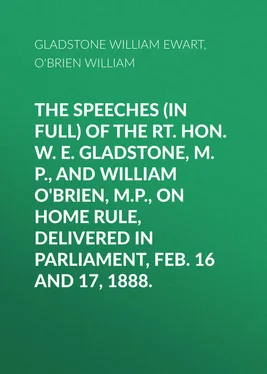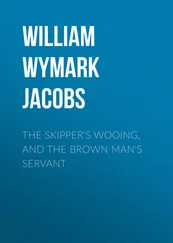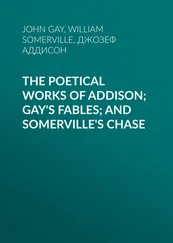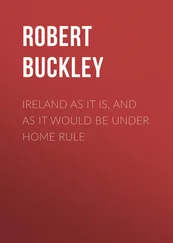William O'Brien - The Speeches (In Full) of the Rt. Hon. W. E. Gladstone, M.P., and William O'Brien, M.P., on Home Rule, Delivered in Parliament, Feb. 16 and 17, 1888.
Здесь есть возможность читать онлайн «William O'Brien - The Speeches (In Full) of the Rt. Hon. W. E. Gladstone, M.P., and William O'Brien, M.P., on Home Rule, Delivered in Parliament, Feb. 16 and 17, 1888.» — ознакомительный отрывок электронной книги совершенно бесплатно, а после прочтения отрывка купить полную версию. В некоторых случаях можно слушать аудио, скачать через торрент в формате fb2 и присутствует краткое содержание. Издательство: Иностранный паблик, Жанр: foreign_antique, foreign_prose, на английском языке. Описание произведения, (предисловие) а так же отзывы посетителей доступны на портале библиотеки ЛибКат.
- Название:The Speeches (In Full) of the Rt. Hon. W. E. Gladstone, M.P., and William O'Brien, M.P., on Home Rule, Delivered in Parliament, Feb. 16 and 17, 1888.
- Автор:
- Издательство:Иностранный паблик
- Жанр:
- Год:неизвестен
- ISBN:нет данных
- Рейтинг книги:5 / 5. Голосов: 1
-
Избранное:Добавить в избранное
- Отзывы:
-
Ваша оценка:
- 100
- 1
- 2
- 3
- 4
- 5
The Speeches (In Full) of the Rt. Hon. W. E. Gladstone, M.P., and William O'Brien, M.P., on Home Rule, Delivered in Parliament, Feb. 16 and 17, 1888.: краткое содержание, описание и аннотация
Предлагаем к чтению аннотацию, описание, краткое содержание или предисловие (зависит от того, что написал сам автор книги «The Speeches (In Full) of the Rt. Hon. W. E. Gladstone, M.P., and William O'Brien, M.P., on Home Rule, Delivered in Parliament, Feb. 16 and 17, 1888.»). Если вы не нашли необходимую информацию о книге — напишите в комментариях, мы постараемся отыскать её.
The Speeches (In Full) of the Rt. Hon. W. E. Gladstone, M.P., and William O'Brien, M.P., on Home Rule, Delivered in Parliament, Feb. 16 and 17, 1888. — читать онлайн ознакомительный отрывок
Ниже представлен текст книги, разбитый по страницам. Система сохранения места последней прочитанной страницы, позволяет с удобством читать онлайн бесплатно книгу «The Speeches (In Full) of the Rt. Hon. W. E. Gladstone, M.P., and William O'Brien, M.P., on Home Rule, Delivered in Parliament, Feb. 16 and 17, 1888.», без необходимости каждый раз заново искать на чём Вы остановились. Поставьте закладку, и сможете в любой момент перейти на страницу, на которой закончили чтение.
Интервал:
Закладка:
W. E. Gladstone
The Speeches (In Full) of the Rt. Hon. W. E. Gladstone, M.P., and William O'Brien, M.P., on Home Rule, Delivered in Parliament, Feb. 16 and 17, 1888
MR. GLADSTONE'S SPEECH
Mr. Gladstone. In following the right honorable gentleman, I shall only touch those portions of his speech which go the heart of the question. In my opinion, they constituted a very small part of his address ( cheers ), the rest being criminatory and incriminatory matter, which, however amusing to a portion of the House, really assists us very little in getting at the root of the great question before us. I do this particularly because there is a great difficulty, owing to the enormous range of the question, in confining the debate within the narrow limits to which we all desire to confine it. My honorable and learned friend, the member for Inverness (Mr. Finlay), last night, when no member of the Government seemed in a condition to follow the speech of the honorable member for Northeast Cork (Mr. W. O'Brien), ( Opposition cheers ), gallantly stepped into the breach, and performed that office on behalf of ministers, which has so often been performed by those who are sometimes termed "Dissenting Liberals"; namely, that of finding expedients of defence for the Government which they and their adherents behind them have been unable to discover. ( Opposition cheers. ) My honorable and learned friend said he thought it high time that the debate should draw to a close. I can perfectly understand reasons why he should desire that there might be no debate at all on this subject ( laughter and cheers ), but when he says that the discussion has extended to unreasonable length, I point to the speech of the Attorney-General last night, of the length of which I am far from complaining, but which was evidently in sharp contradiction with the view of my honorable and learned friend.
Why, sir, it has not been possible to include in this debate a number of questions which deserve, and may yet have to receive detailed criticism. For example, the law of public meetings has hardly been touched, and yet it is gravely involved in the proceedings of the recess. (" Hear, hear. ") The relations between landlord and tenant have hardly been touched, and to that notwithstanding a similiar observation will apply. (" Hear, hear. ") The treatment given to prisoners of a particular class has not been the subject of discussion, and I will make none of these three matters subject of discussion; but at the same time no one can doubt that all of them, and many more besides, are fit for the attention of the House. (" Hear, hear. ") I must proceed by the method of selection, and I am bound to say that so far as I am personally concerned, if it had not been for the pointed references to me, and the perfectly fair and just challenges delivered against certain portions of my speeches in the recess, I should gladly have remained out of sight. I am of opinion that such speeches as have been made by the honorable member for the city of Cork in moving his amendment, and by the honorable member for East Cork on the memorable occasion of the opening of last night's debate ( Home Rule cheers ), go more to the heart of the matter, and more to the mind of the country, than anything that can be said or urged by those who, whatever else may be said of them, cannot deny that they stand in the position of leaders of a party, and are liable to the imputation of party interests. On the other hand, these gentlemen are in a position to say that they have shown us independence of party. They have dealt a death blow to Liberal administrations, and the members of those Liberal administrations never have complained, and would not have been justified in complaining. They are the advocates and the organs of a nation. ( Opposition cheers. ) They are in a condition to speak with an effect to which they cannot make any just pretension when they address themselves to the heart and to the understanding of another nation on whose judgment they are content to rely. ( "No," from the Ministerial benches, and counter cheers. )
But, sir, there was a part of the speech of the right honorable gentlemen which he introduced with an apology, and which I think it right hriefly to follow. He referred to the communication between Lord Carnarvon and the member for Cork, and I cannot question for a moment the denials he has made. But what were those denials? I attended as well as I could to his statement, and his denials were three. In the first place, he denied that any engagement or agreement had been made. Sir, I am not aware of its having been asserted. He denied, secondly, that it ever had been stated to be the intention of a Conservative Government to grant a measure of Home Rule. I am not aware, sir, that that has ever been stated. Thirdly, he denied on the part of Lord Carnarvon, and I accept the denial with all my heart, that Lord Carnarvon had ever used any words inconsistent with the maintenance of the Union. ( Ministerial cheers. ) But these three denials leave entirely untouched the material parts of the case. What are these material parts? If the right honorable gentleman wishes to dispose of them, I can only say that they are not disposed of by what he has said to-night, and he must set about with a new set of statements and denials in order to get rid of them. ( Opposition cheers. ) It was stated by the honorable member for the city of Cork, that he found himself in substantial – I might say, in entire agreement with Lord Carnarvon on the question of Home Rule. That has not been denied. ( Home Rule cheers. ) It has been stated that Lord Carnarvon spoke for himself, and that I do not question, in so far as a Lord Lieutenant can speak for himself. ( Opposition cheers. ) The right honorable gentleman, the Chief Secretary, did not deny in the speech he has just made, and certainly there was space in that speech for such denial, that Lord Carnarvon and the honorable member for Cork were in substantial agreement on the policy of Home Rule.
Mr. Balfour. I may say that, from the abstract I read, Lord Carnarvon clearly, in my idea, did not express his opinion about the Home Rule policy.
Mr. Gladstone. The honorable member for Cork declared that he had an interview with Lord Carnarvon, and that he found himself in agreement with Lord Carnarvon on the subject. The right honorable gentleman has not denied that. ( Home Rule cheers. )
Mr. Balfour. I interpreted Lord Carnarvon's statement as distinctly denying that.
Mr. Gladstone. I ask for the words of Lord Carnarvon's statement which contains that denial. ( Cheers. )
Mr. Balfour. I will obtain them as quickly as I can, but it would take me out of the House to do so now. ( An honorable member: "Send for them." )
Mr. Gladstone. It is a very dangerous practice to make statements of that kind and importance without the material on which they are founded. ( Ministerial cries of "Oh." ) I affirm that I am in the recollection of the House that whatever inference or interpretation the right honorable gentleman made upon the declarations of Lord Carnarvon, there was not a word in the passage he read which contained, or which approached to containing, a denial of the statement of the honorable member for Cork, that he and Lord Carnarvon were in substantial agreement on the policy of Home Rule.
Now I ask the right honorable gentleman what he thinks of another statement made by Lord Carnarvon in the House of Lords, and within the memory of all of us, in which, speaking of the measure of entended government that ought to be granted to Ireland, he said that they ought to meet all the just demands of that country for local self-government, and likewise ought to be directed in some degree towards giving reasonable satisfaction to national aspirations? Does the right honorable gentleman say that he is in favor of giving reasonable satisfaction to national aspirations? On the contrary, it is the very phrase and the very idea which, on no consideration, will he recognize, and it is the phrase and the idea which form the basis of the views of Lord Carnarvon, and here the right honorable gentleman cannot contradict me. Well, I think, having got so far, I may go farther. Lord Carnarvon, being Lord Lieutenant of Ireland and being a member of the Cabinet, or whether he was a member of the Cabinet or not, was absolutely bound to make kown his views to Lord Sailsbury, if not to the Cabinet at large. He did make known his views to Lord Salisbury in the fulfilment of a primary duty. Lord Salisbury continued to repose his confidence in Lord Carnarvon. For months afterwards Lord Carnarvon continued to be Lord Lieutenant. When he retired he did so professedly on account of his health and amid the expressed regrets of his colleagues. Now, sir, we are called separatists. (
Читать дальшеИнтервал:
Закладка:
Похожие книги на «The Speeches (In Full) of the Rt. Hon. W. E. Gladstone, M.P., and William O'Brien, M.P., on Home Rule, Delivered in Parliament, Feb. 16 and 17, 1888.»
Представляем Вашему вниманию похожие книги на «The Speeches (In Full) of the Rt. Hon. W. E. Gladstone, M.P., and William O'Brien, M.P., on Home Rule, Delivered in Parliament, Feb. 16 and 17, 1888.» списком для выбора. Мы отобрали схожую по названию и смыслу литературу в надежде предоставить читателям больше вариантов отыскать новые, интересные, ещё непрочитанные произведения.
Обсуждение, отзывы о книге «The Speeches (In Full) of the Rt. Hon. W. E. Gladstone, M.P., and William O'Brien, M.P., on Home Rule, Delivered in Parliament, Feb. 16 and 17, 1888.» и просто собственные мнения читателей. Оставьте ваши комментарии, напишите, что Вы думаете о произведении, его смысле или главных героях. Укажите что конкретно понравилось, а что нет, и почему Вы так считаете.












